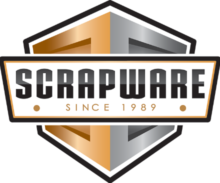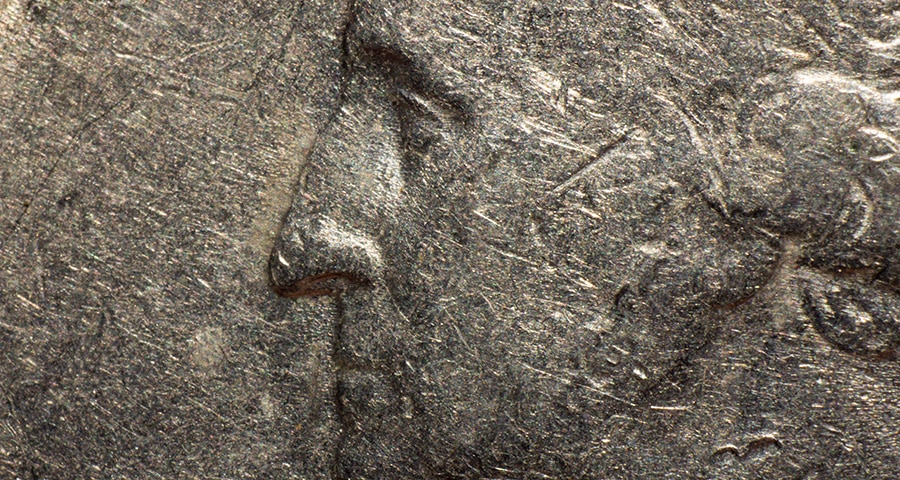Old pennies, nickels, dimes and quarters lost between automobile seats, stuck in coin-operated washers and dryers or left in vending machines routinely make their way into the scrap stream.
A popular program operated by the U.S. Mint to exchange these coins was suspended and is now under review. New regulations recently proposed by the Mint could mean that scrap metal recyclers will no longer be able to utilize the program.
The Mutilated Coin Redemption Program was put in place in 1911 with the goal of taking old coins out of circulation. Scrap metal recyclers were among those who utilized the program to return damaged coins to the Mint. Loose change lodged in cars, appliances and machines frequently ends up in scrap yards. With advances in sorting technology, recyclers have been able to identify and recover an increasing number of old coins in the recycling process. They are now able to collect more coins more easily and quickly. The Mint’s program reimbursed participants the full face value of the coins that had been damaged, bent, fused or were otherwise not current.
On May 5, the Mint proposed the new regulations that seek to protect the program from counterfeit and fraud. The effect of the new regulations, however, would be to prohibit recyclers from participating in the program. Under the proposal, if a coin is damaged during an industrial process, it would not be eligible for redemption. The proposal defines an industrial process as the use of “shredders, burnishers, incinerators, exposure to elevated temperatures,” and coins that have been “drilled, punctured, ground, polished, etched or chemically treated by any industrial or recycling process.” These coins would not be eligible for redemption.
The proposal would also establish two additional restrictions. First, it would prohibit the redemption of coins imported from outside the United States. Additionally, it would limit the weight and shipments of coins that can be redeemed to 1,000 pounds per month per participant. The agency is accepting public comments on its proposal until July 6.
The Institute of Scrap Recycling Industries, Inc. (ISRI) is planning to submit comments on this proposal. While the goal of the new regulations is to improve the integrity of the program and eliminate counterfeit, the outcome will hurt scrap metal recyclers and have a negative impact on the environment, according to ISRI’s website. Scrap metal recyclers have collected and stored these coins and should be able to exchange them, ISRI states. The trade association adds that getting rid of these coins—made from copper, silver and zinc—will lead to the mining of new material which is not as good for the environment.
ISRI will recommend a rigorous certification process for participants and encourage the Mint to accept coins collected from domestic recyclers who have undergone the registration and inspection procedures. This process would include random inspections to prove that recyclers are not involved with submitting counterfeit coins. Such a plan would allow domestic recyclers to still participate in the program while meeting the agency’s goal of cracking down on counterfeit and fraud. ISRI believes recyclers would be willing to undergo the certification process and inspections if it would enable them to still participate in the program.
In 2015 the Mint suspended the program to examine its security against counterfeit coins. At that time, ISRI recommended a Registered Supplier Program. The Mint reinstated its exchange in 2018 with new guidelines requiring an inspection process during which participants had to certify the coins were genuine. However, the Mint shut the program down again in 2019. In the meantime, many recyclers have continued to collect and store these coins awaiting government resolution. Recycling industry experts state that it is better to reuse and recycle coins as much as possible as opposed to manufacturing new coins from virgin copper, silver and zinc.
Under the guidelines, coins incoming for the program will now have to be sent to the U.S. Mint in Philadelphia, where the agency has the technology and staff to evaluate the coins and identify counterfeits. Any shipment including counterfeit coins will be turned over to law enforcement and in some circumstances, participants may be required to retrieve a rejected shipment.
ScrapWare Corp., of Rockville, MD, has been providing software to the scrap metal recycling industry for over 30 years. ScrapWare uses an Oracle database to provide a cloud-based software solution to manage all aspects of a recycling business. With numerous modules, extensive technical support, remote installation and online training, ScrapWare helps recycling companies with compliance, efficiency and profitability. Check out ScrapWare’s website, read the user testimonials, and see its offerings for your recycling software solution.

